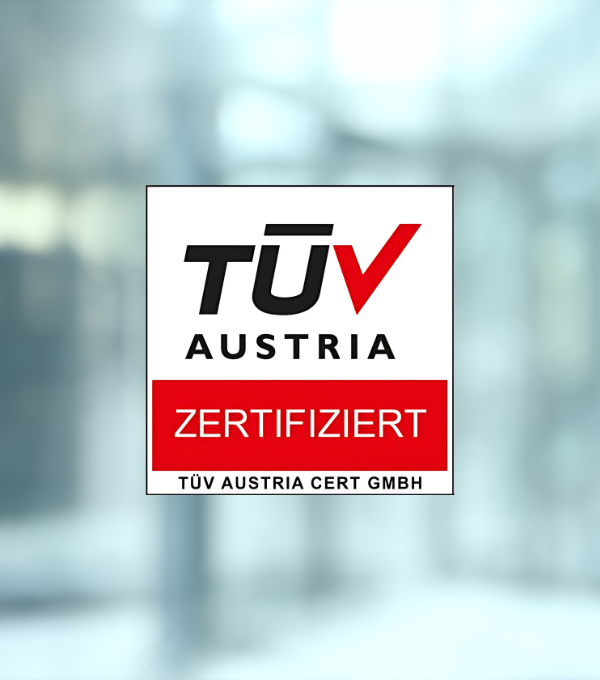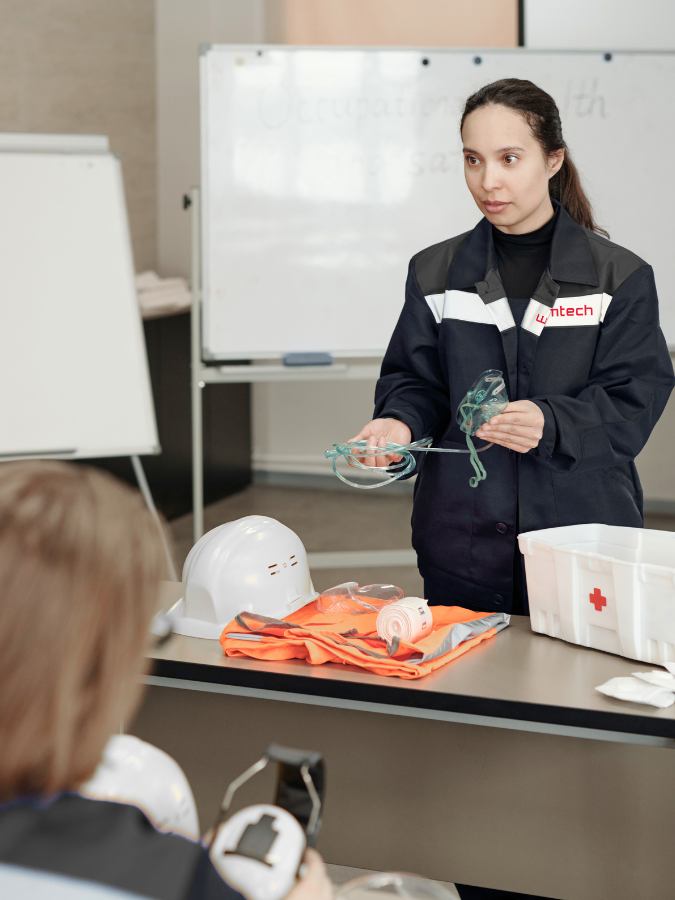Safety first - Challenges for suppliers at international level
Safety and quality are not negotiable in plant engineering - they are essential requirements. But while plant manufacturers define strict requirements, their suppliers are faced with the challenge of complying with international standards and regulations. Certifications according to ISO 9001, SCC * and SCP in particular set high standards for quality and safety management. But that's not all: Suppliers have to deal with a large number of standards and certifications, depending on the industry, market and area of application of the products. In this article, we look at the safety requirements plant manufacturers place on their suppliers, the challenges they face and the measures that help ensure maximum safety and quality.

Safety requirements for suppliers: What do plant manufacturers demand?
Plant manufacturers must ensure that all components, assemblies and services meet the highest safety and quality standards. The following aspects play a central role:
Standards and certifications as a basic requirement
ISO 9001 – The globally recognized standard for quality management. Suppliers must demonstrate documented processes, continuous improvements and customer focus.
SCC * (Safety Certificate Contractors) – A certification for safety, health and environmental protection management (SGU), which plays a central role especially in assembly work on construction sites.
SCP (Safety Certificate Personnel) – Specifically for companies that carry out safety-critical activities – ensures that the personnel are appropriately trained and qualified.

Other relevant standards and certifications for international markets
✔ ISO 45001 – International standard for occupational health and safety, often required in conjunction with SCC*.
✔ ISO 14001 – Environmental management standard that is playing an increasing role, especially in industry.
✔ IEC 61508 – Standard for functional safety, particularly relevant for controls and automation technology.
✔ UL certification (Underwriters Laboratories, USA) – Essential for the US market, especially for electrical components and machines.
✔ CE marking (Europe) – Mandatory for many machines and systems to confirm compliance with European safety guidelines.
✔ CCC certification (China Compulsory Certificate) – Requirement for numerous technical products sold or used in China.

Further requirements for suppliers
✔ Documentation requirement – Suppliers must provide complete evidence of production and testing processes to ensure traceability.
✔ Safety instructions – Regular training for staff is mandatory, especially during assembly work.
✔ Supplier portals & audits – Plant manufacturers are increasingly relying on digital supplier portals in which evidence, certificates and qualifications are managed and checked.

Safety requirements for assembly and control cabinet construction
Mechanical installations : Ensuring load capacity calculations, crane and lifting technology safety, avoiding material fatigue.
Electrical installations : Compliance with protection classes, safe cable routing, testing of insulation and earthing.
Control cabinet construction : Wiring in accordance with standards in accordance with IEC 61439, EMC protective measures, consideration of international mains voltages.
Challenges of international assembly operations
Logistics: Transport of machines and control cabinets taking customs and export regulations into account.
Documentation: Safety certificates often have to be created and certified in several languages.
Training of personnel: Different safety cultures require adaptable training concepts.
Challenges for Suppliers: Between Certification and Efficiency
Compliance with these standards presents suppliers with a number of challenges:
Bureaucratic effort and costs
Certification according to ISO 9001, SCC * or SCP requires detailed documentation, regular training and audits - a high administrative effort.
For smaller suppliers, the costs of certifications and continuous training can be a burden.
International regulations and country-specific differences
- While ISO 9001 and SCC * are widely used in Europe, UL standards apply in the USA and CCC certifications in China.
- International projects often require multiple certifications at the same time, which causes additional effort.
- Worker safety guidelines vary widely – in Germany, UVV regulations are strict, while other countries have different levels of safety.
integration into digital supplier portals
- Many plant manufacturers use digital platforms to manage suppliers.
- Suppliers must regularly update certificates, training records and test documents – those who are not listed are often not even considered.


Best Practices: How Suppliers Ensure Safety and Quality
To meet the high demands, successful suppliers rely on proven strategies:
1. Early certification & continuous training
- Companies that already have relevant certifications in advance have advantages when bidding.
- Regular training and SGU instructions ensure safe assembly processes.
2. Standardized documentation & digital processes
- Uniform test reports, risk assessments and certificate management facilitate audits.
- Digital supplier portals help to renew certificates and training certificates on time.
3. Safety strategy for mechanical & electrical assemblies
Mechanical assembly : precise planning of lifting operations, load calculation and material testing.
Electrical assembly : EMC protective measures, wiring in accordance with standards, safe separation of control and power circuits.
Switch cabinet construction : integration of IoT technologies, consideration of international mains voltages, testing in accordance with IEC 61439.
4. Global compliance strategy for international projects
- Companies with a structured compliance strategy avoid problems in international markets.
- Best practice: Align certificates and training with international regulations to avoid double certification.
- Control cabinet construction for the international market: Documentation in several languages, UL and CE requirements directly taken into account.
Conclusion: Security as a competitive advantage
The safety requirements in plant engineering are high - and they are constantly increasing. Plant manufacturers expect not only compliance with standards, but also complete documentation and qualified personnel. Suppliers who rely on ISO 9001, SCC *, SCP and other relevant standards at an early stage, pursue a compliance strategy for international projects and use digital processes can establish themselves as a reliable partner.
This is exactly where WIMTECH comes in: As a TÜV-certified service provider in plant construction, WIMTECH meets the highest safety and quality standards. With trained specialists, certified processes and consistent compliance with international regulations, WIMTECH reliably supports plant manufacturers with mechanical and electrical assembly as well as with control cabinet construction.


„Safety and quality are not USPs for us – they are the basic prerequisite for sustainable success.”
Contact us
With our know-how in the areas of plant engineering and electrical engineering, the necessary human resources and a global network, we are ready for your project!


